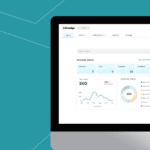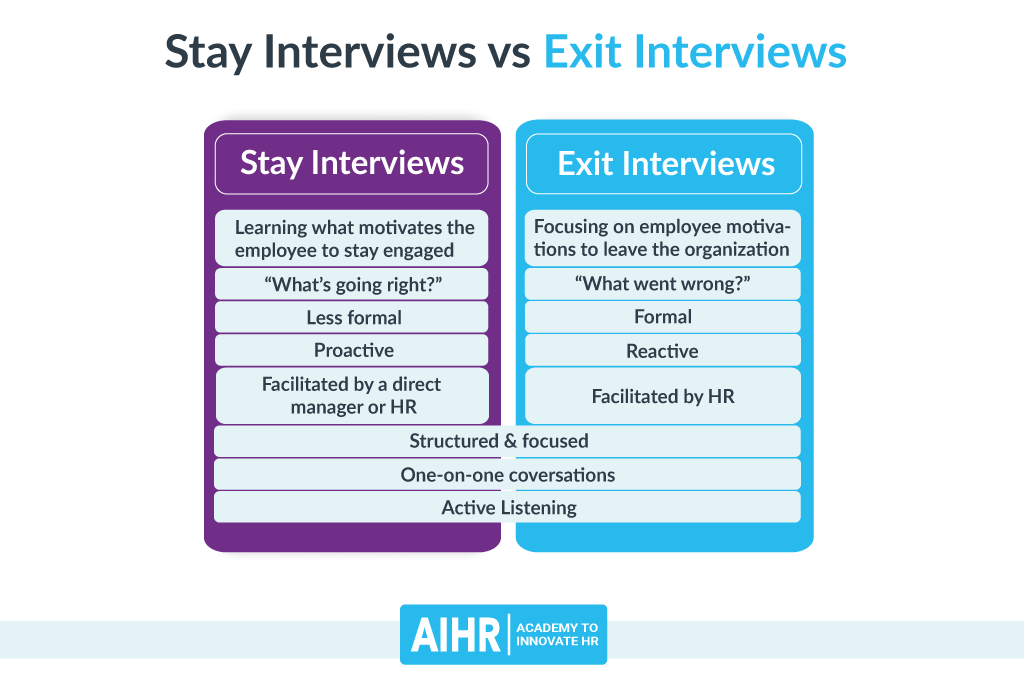
How to request Time Off on MyEdge

Managing Assets and Vehicles in BizEdge
You most likely have heard of exit interviews and have an idea of their essence and how they work. However, have you ever taken time to sit down with your employees for a stay interview? These are conversations that allow employees to express appreciation and concerns about company culture and processes.
What is a stay interview?
Stay interviews are conversations designed to surface issues that directly impact employee retention. True, they might not be submitting their resignation letter, but employees will most likely not directly come out with their frustrations about the job.
How do stay interviews affect retention?
Unlike exit interviews that happen during offboarding, stay interviews focus more on why they are staying.

With stay interviews, it’s a win-win
You get to retain your talent and your employees feel good about working in a company that listens to them. While some complaints and suggestions might be unrealistic, other reasonable requests that could be easily implemented would also save costs for the company.
Get quality insights
Get quality insights into what your employees love or don’t love about working for your organisation. You won’t just be making a decision based on your thoughts but facts. With the information, you get to improve on it. It becomes a touchpoint in recruiting talents. You are more informed about how to boost engagement and the more engaged employees feel, the more likely they are to stay retained.
Improves inclusion
Employees know they are not just workers but in a community where their voices are heard and their concerns are looked into. Check out how inclusion helps improve retention here.
Conducting stay interviews
Be strategic
Your stay interviews are best conducted strategically; putting into consideration when they would be implemented. They shouldn’t be conducted during peak periods – never in the middle of a major launch for the team, or during the end of year reports, etc. You should also not have them alongside performance reviews, they’d be worried about evaluation and you might not get sincere, effective feedback. Find out when you have turnovers; an overview of your employees in HRM software would help with this; conduct your interviews months before your average turnover period.
Get them to relax
Let your employees know your goal is to get honest constructive feedback to improve their experience in the company. There are neither perfect nor wrong answers and it will in no way affect their evaluation. You value them and their contribution and want to ensure they are happy working at your company.
Choose the right interviewer
More often than not, an employee’s supervisor may not be the perfect fit except in situations where managers have close relationships with employees.
Take feedback seriously
You want your employees to feel heard. However, don’t make promises you can’t keep. Instead of telling them you will implement their considerations, rather tell them you will take some thoughts about it. Don’t just say you will, but actually have thoughts about it.
Conclusion
If time is a major concern, you can have informal stay interviews; such as check-ins by supervisors during work hours; this would work especially if your departmental managers have strong relationships with staff.
Some pointers that you need for stay interviews can be gotten from your employee size overview quarterly. Are you having a high undesirable turnover rate? More recruitment doesn’t mean you are having high turnovers. You might have expanded and filled in open spaces. This is why you need accurate, easy-to-access data. Employee advocacy, when constructive and strategically implemented, improves the general view of the company.
Question tips for Stay interviews
While ensuring to tailor your questions appropriately, here’s a good place to start off or include to avoid an unproductive vent session.
- Are there any aspects of this job that motivate you to come to work every day?
- What are some challenges you experience in your position?
- What do you enjoy the most about your job?
- What is your least favourite part of your job?
- In the event you could change anything about your role, would that be it?
- Would you mind telling me what this company does/has done to keep you here?
- Have you ever considered leaving? If so, what led to that decision and why did you stay?
- How would you describe the managerial style in your department?
- Is there anything you would improve upon?
- Could you please offer any suggestions on how to make this a more satisfying work experience for you?
- Besides this position, are there any other opportunities with our company that you’re interested in?
